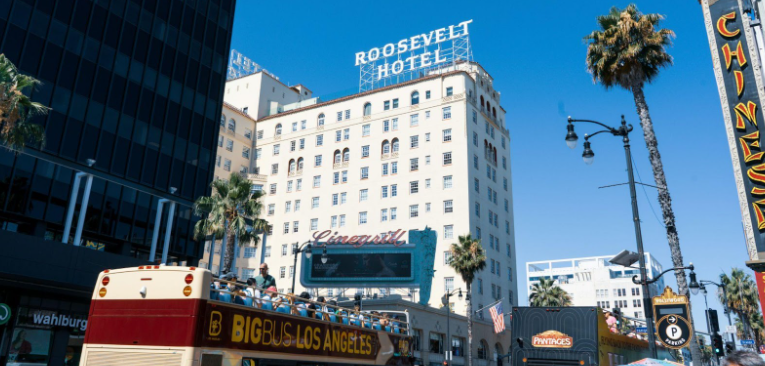
Running a hospitality business in a city like LA or NYC comes with its share of glitz and glamour—but also the grinding gridlock. And if you’re running a business in a bustling city, then you know the value of parking management. Often the last thing on your mind, but it plays a huge role in foot traffic and whether people have easy access to your business. In a hospitality market driven by convenience, experience, and brand touchpoints, your parking setup is no longer just a logistical detail—it’s a make-or-break customer acquisition and retention decision.
The Parking Pain Point in Big Cities Like LA
Let’s put the problem into perspective:
- LA drivers spend an average of 85 hours per year stuck in traffic, according to INRIX’s Global Traffic Scorecard.
- Nearly one in three drivers abandon their destination if parking isn’t easy to find.
- On average, Angelenos spend over 17 minutes searching for parking—per trip.
Translation? If you don’t solve the parking puzzle for your guests, they’ll likely move on to someone who does.
Parking Is Part of the Guest Experience (Whether You Like It or Not)
Before your guests reach your welcome desk, your botanical garden, or that eucalyptus steam room, they’ve already formed an opinion—based on their arrival.
If that arrival includes honking traffic, unclear signage, or a self-park lot five blocks away with no shade… that glowing Yelp review just got a little dimmer.
Done well, parking can be:
- A silent concierge guiding guests effortlessly from arrival to check-in.
- A brand statement that says, “We thought of everything.”
- A revenue opportunity that pays for itself (and then some).
Your Options: From Sleek Valet to Tech-Enabled Self Park
Depending on your size, location, and price point, your ideal parking solution might look very different. Here’s how to think about it:
Option 1: Full-Service Valet Parking (for Luxury & High-Touch Brands)
Full-service valet is the preferred option for upscale hotels, wellness clubs, or spas where every guest touchpoint is expected to be intentional, convenient, and often luxurious. In the very least, valet removes the friction, adds polish, and makes every guest feel seen.
What it includes:
- Uniformed attendants trained in guest service
- Optional text-to-retrieve vehicle systems
- On-site management during peak hours
- Digital tipping and ticketless valet platforms
Full-service valet, like FC Parking Valet Services, is a must for boutique hotels, luxury spas, event venues, or anywhere that vibe matters. In areas like AL and NYC, a valet is often seen as a social signal—and it makes your guests feel like VIPs from the very moment they arrive.
Option 2: Smart Self-Parking with Tech Assist
Don’t want the cost or complexity of valet? Smart parking tech can do a lot of the heavy lifting—especially in busy urban locations.
What it includes:
- LED lights showing real-time space availability
- Digital signage to direct guests to open levels or sections
- Mobile-friendly check-in/check-out systems
- License plate recognition for easy guest validation
This option would be ideal for mid-range hotels, modern BnBs, self-care lounges, or urban retreats with limited staff. In fact, smart parking systems can reduce time-to-park by up to 30% and improve turnover in high-demand areas.
Option 3: Hybrid Parking with Light-Touch Staffing
A lot of hospitality businesses fall somewhere in between. You want something better than a surface lot—but not a full white-glove operation.You want something that matches your business and makes sense financially.
What it might look like:
- Valet service on weekends or evenings only
- Smart tech for daytime operations
- Remote monitoring or shared lot management
- Partnership with nearby garages (with shuttle or walking map integration)
Great for high-volume BnBs, urban wellness centers, mid-size hotels without built-in garage access, etc.
Questions You Should Be Asking (But Might Not Be)
It’s not just about “Do we have enough spaces?” Here’s what savvy operators are asking before revamping parking:
- How many guests actually arrive by car? (Data is your friend.)
- Do guests regularly complain about parking in reviews? (If yes, it’s costing you.)
- Is our signage helping or hurting? (Unclear entry points kill flow.)
- Do we lose revenue on unmonitored lots? (Untracked parking is missed opportunity.)
- What’s our plan for event overflow, peak seasons, or VIP drop-offs?
Parking as a Revenue Stream, Not Just a Cost
Here’s the part no one talks about: parking can pay for itself. When structured smartly, it can generate:
- Daily parking fees for guests or visitors
- Premium upgrades (priority spots, covered parking)
- Event night surcharges or validations
- ROI from avoided staff time spent untangling traffic issues
In most cases, hospitality businesses recoup their investment in upgraded parking within the first year—especially in traffic-heavy cities like LA, NYC, or Atlanta.
Final Thought: Don’t Let the First Experience Be the Worst One
You’ve invested in luxury linens, organic teas, and a beautifully branded welcome experience. Don’t let a chaotic parking situation undercut all that.
Parking, when done right, is invisible—it just works. But when done wrong? It’s the first and last thing your guests remember.
